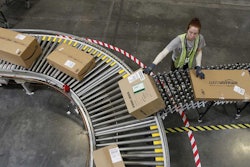There has been a lot of discussion recently on what the worker of tomorrow will be all about. What will be the most marketable skill sets? What will define their worldview and influence their motivations? What traits will a working person need to possess to thrive in the next iteration of the working world?
Of course, these aren’t the only questions. Of equal importance is the question of what the nature of work will be in this pending age of commercial endeavor. You really can’t address any of these questions individually without some consideration of the other.
A look back will illustrate this point.
Talkin’ ‘bout My Generation
“Why don’t you all just f-f-f-fade away?” asks The Who in their iconic song of generational frustration. All of us have at times felt that frustration.
The second half of the twentieth century offered a working experience that was primarily skills-driven. One went to school or apprenticed to become a teacher, a doctor, a plumber, an engineer or to obtain some other titled professional designation. Qualification in a field often meant having some certification that was only granted when the applicant was able to demonstrate proficiency in a variety of related skills and applying specific knowledge in utilizing those skills.
It became more and more common to append one’s name with a Cxx designation. The certificates were not only issued by collegiate institutions but also by professional organizations, and some carried more credibility than others.
You could obtain almost any professional certification imaginable such as CRM for Certified Records Manager or CMC for Certified Municipal Clerk. Project Management Professionals sought the PMP certification, and CPS certificates were issued to qualified secretaries. Supply chain management and customer relationship management as well as a host of other areas also offered certificates. This was an era of specialization, and the certificate was meant to identify the best of the best within a given discipline.
In my own career, I found this to be a particular challenge. I was a generalist, trained as a music teacher and seeking employment in the field of information management and ultimately marketing within the information management vertical. Job ads, employment counselors and human resources departments all worked in a world of titles, skills, certifications and documentable work history. To them, I was a mystery.
Couple this with a comparably steady, but sedate, evolutionary velocity in technology and practice, and what you have is a comfortable workplace marked by stability and control. Skilled professionals could expect to be relevant for 25 to 30 years with minimal re-education or vocational re-orientation. Generalists like myself were less well understood and somewhat less valued. But, generalists always have a measure of freedom that skill-restricted workers do not have. They are uniquely equipped to handle change — even disruptive change.
The rate of disruption during much of the twentieth century was glacial compared to the workplace of today, and that difference will only increase over time.
The Manufacturing Workplace
Today we tend to look at our factories as being one of two things. The first, rusting, dangerous relics from the mid-twentieth century staffed by folks who are physically gifted but limited in terms of formal education except for the appropriate trade certificates they might need to perform their jobs. The second is our factories being automated, lights-out operations with a couple of MIT grads sitting back monitoring the systems to be sure all is running smoothly.
The reality is really somewhere in between. But, the dichotomy is not entirely inaccurate. The factory worker is not exempt from the move away from a single-profession, single-function job. The new factory worker will be expected to handle technology, learn new technology and visualize the production process as a whole.
This journey from skilled or task-oriented worker to something more complicated is a model for all of us. Rather than having machine tool operators we will have multi-member fabrication teams. Instead of turning out thousands of iterations of the same part, these teams will oversee and apply the appropriate “maker” technology to the entire production process.
The concept of smaller factories turning out highly customized products for a wider variety of customers through the application of 3D and other technologies is what the future looks like — more factories and smaller factories performing a service-based model of manufacturing for markets much closer to home.
The Workplace of Tomorrow
The United States Navy is almost legendary in its love of tradition. Much of this tradition can be traced back to the very beginning of our Navy and even to the naval traditions of the British Royal Navy. In many ways, life aboard a ship was defined by what one did on a day-to-day basis to keep things in working order.
The Navy utilized a system of professional job titles called “ratings.” You could be a yeoman, a boatswain’s mate, a machinist’s mate or any of several hundred ratings available. Recently the Navy announced that the ratings system would be scrapped.
The reason for doing away with this system is found in disruptive change in the social nature of the Navy and the rate of disruption from a technological perspective. New ratings might last a few years before they were eliminated or they were mashed together with another rating to accommodate some technological development. The system simply could not keep up with the rate of change.
This aggressive rate of disruption is key to defining the workplace of tomorrow and ultimately the nature of the ideal workforce staffing the offices, factories and places of business in the future.
Tomorrowland’s workplace will feature less structure and formality. Hours of work — daily, weekly or monthly — will be less important than the measurable results of one’s work. This is already becoming the new norm with flextime, work-at-home and contract employment enabled by the technology of portability, the interconnected workplace and extended organizational structures across geopolitical borders.
Companies never close, and the work day runs 24 hours. I know many people who participate in regular global conference calls in the late evening or early morning hours, and I know many who maintain personal offices in multiple locations around the globe.
Take a ride on an airplane. When the seatbelt light clicks off, it used to cue the smokers that they could light up. Now it means opening the laptop or pulling out your tablet and getting back to work. Work is done at home, on the road and at the beach on vacation as the work-/personal-life line blurs and obscures once inviolate realms within one’s life.
The organization of tomorrow will continue the current trend toward flatness with fewer rungs in the hierarchical ladder of management.
Technology powering the workplace will continue to evolve and develop at a rapid pace. Companies will acquire, use and discard technology in shorter and shorter cycles as one iteration becomes obsolete in favor of the next. If new technology delivers a competitive edge, it will be adopted much more readily.
Our educational institutions are already stressed in terms of fulfilling their roles in preparing our young for technical careers. The private sector is leaning on public education to up their game in this regard. A recent example of this involved the pharma giant, Baxter International. They buttonholed the Governor of Georgia, Nathan Deal, and secured $14 million in funding for education tailored to their needs and provided in close proximity to their new plant site.
This accelerating cycle of technological development has dramatic implications for the workplace. Companies themselves will need to be in the education business in order to keep their workforces current. The choice is simple — either fire your workforce and replace it every few years with new hires who are conversant in new technology, or build re-education into your business processes. Tech vendors will be expected to help with this process.
The Workforce of the Future
As these trends continue to evolve, the workforce must continue to evolve as well.
It would be a mistake to look at the future of work exclusively through the lens of relevant specific skills. The factory of today, and certainly of tomorrow, isn’t looking for individual skills; they are looking for job candidates who can readily grow and assimilate new technology rapidly and effectively.
Technologies like 3D printing or additive manufacturing, virtualization and IoT are here to stay. The workforce will be expected to readily adapt to and use iterations of these technologies as well as those technologies that will eventually replace these.
Workers in the future (if not already) will be looked at in terms of their adaptability and flexibility. What they are able and willing to learn to do will be more important than what they can do. The immediate skill set may have relevance in a particular situation, but the primary goal will be to find people who are able to integrate new skills into their repertoire rapidly and effectively.
This will not be a world for workers who require constant supervision. The ability to see what needs to be done and to get it done will vastly outweigh the ability to “take orders” or rely on authority figures to plan your activities. This will make the workplace a more risk-friendly environment with higher rewards for accomplishments, but at the same time, failure will be seen as an opportunity for learning both institutionally and personally.
Successful companies will engage employees with strategic programs designed to keep them self-motivated and to ease the burden of learning and adapting to new technologies coming online.
In addition to skills acquisition, every worker will need to be able to consume, distill and react to vast amounts of information generated by all manner of sensor-generated data, media and real-time communication. Tactical and strategic systems in the form of Customer Relationship Management (CRM), Configure-Price-Quote (CPQ) and overarching all of it, Enterprise Resource Planning (ERP) will combine with IoT to produce this staggering amount of data. Knowing what is “signal” and what is “noise” will be essential in this data-driven IoT world.
Organizations will need to be nimble and reactive. This will require workers who are comfortable working on teams in a project-based format. You may be in Finance or Marketing, but you will be the Finance or Marketing representative on the compensation team, the competitive response team or the product development team.
Team architecture should also reflect multiple generations who are present in the workforce. Experience is valuable, just as is the fresh point of view found with youth. Together they are far more effective than they are by themselves. Teams will also help with the burden of training and ensure that the departure of one generation does not leave an experience deficit within the workforce.
Workers will lead and follow as is appropriate on whatever team they are currently working within. The worker will be a soldier one day, a general the next and a sergeant on the third.
This is an environment that will reward the creative, the non-conformist and the individual whose comfort zone is discomfort.
A Final Thought
We have moved from field to factory and factory to office, and we are once again on the move. The overarching trend has been to move from physical labor to labor more cerebral in nature.
Robotics and other automation technologies will handle the physical and even many reason-oriented tasks. Some perceive this as a great threat, but it’s only a threat to the complacent and comfortable.
The next evolution will offer great opportunity and great reward. The workforce of tomorrow will need creativity, curiosity, adaptability and I think also generosity — the generosity required to risk being wrong in front of teammates, to give up a favorite idea in the presence of a better idea and a recognition that team victories are more long lasting and permanent than personal victories.
Lou Washington is a blogger and senior writer for Cincom Systems.























